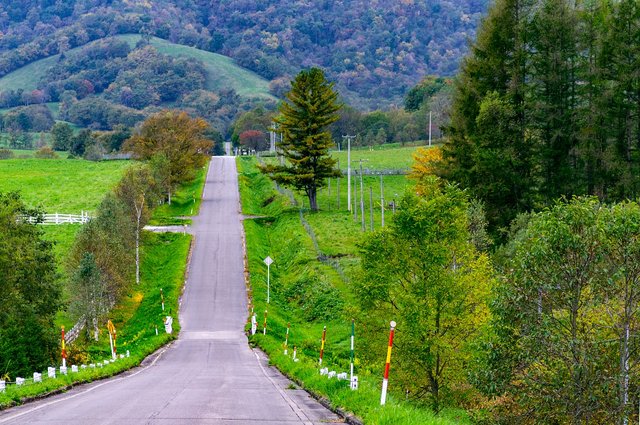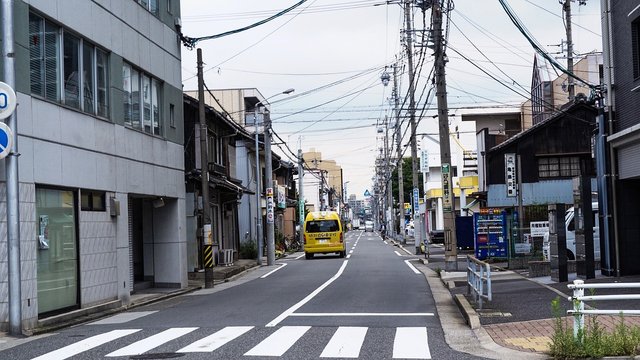Fukushima Residents Upset Over Proposal To Use Radioactive Soil For New Roads

Fukushima residents are upset over a proposal from the state to use radioactive soil for building new roads.
Residents have been urging state authorities to drop their plans to scatter the radiation-tainted soil around their communities. They don't want roads that have been made with contaminated soil, despite efforts from state authorities to try and assure them that it's a safe proposal.
One farmer from the area, Bunsaku Takamiya, suggested that it might fuel rumors of tainted food products that come from the region where the roads are going to be built. And that would negatively impact the livelihood of those living there.
Other community members are concerned that the soil might fuel environmental issues, possibly compromising the quality of the air and the surrounding environment.

So far, state authorities have plans to use the controversial soil to construct a road that stretches 200 meters. They want to use some of the soil to bury under the road and then they have plans to supposedly cover over that with clean soil afterward, in an effort to block radiation.
They've been cleaning-up after the Fukushima disaster for many years now and the problem still isn't contained.
However, with the growing discontent that community members have been expressing lately, state authorities have admitted that it's difficult to proceed with their plans as they originally intended.
Aside from trying to use the soil in various state projects, others have suspected that some of the region might eventually be turned into a toxic dumping ground as a possible solution to the problem.
The state has insisted that the problems surrounding the Fukushima disaster are still far from over. They expect that it will take decades yet until they have removed all of the contaminated soil that they are concerned about within the region. The clean-up costs are estimated to be in the tens of billions, some estimates have placed it as high as $180 billion.
Pics:
Pixabay
Sources:
https://www.japantimes.co.jp/news/2018/04/29/national/fukushima-residents-fight-state-plan-build-roads-radiation-tainted-soil/#.Wuc9_aQvyUk
https://steemit.com/science/@doitvoluntarily/fukushima-cleanup-efforts-still-failing
http://www.newsweek.com/fukushima-radioactive-soil-might-be-used-build-new-roads-and-residents-are-not-906184
http://www.bbc.com/news/world-asia-38131248
Related Posts:
Fukushima: Radioactive Water Still Flowing Into Ocean
https://steemit.com/news/@doitvoluntarily/fukushima-radioactive-water-still-flowing-into-ocean
I assume at some point the japanese government (in conjunction with the IMF) will force the soil on some poor African nation as a condition for debt relief. This "enhanced" soil will be sold to the "voting" public as nutrient rich and a tool to help them increase crop production. After the irradiated soil destroys the entire harvest, the national debt of said African country will increase forcing them to sidle back up to the IMF trough for a new debt package at a higher rate (only after the African country deeds all natural resources to the IMF as a loan condition)
been missing these comments! 😂
hehehehe, thanks doit. I sense you may enjoy my latest flash fiction, stop by, check it out :)
See, this is one of the many reasons why governments should not be in charge of the roads.
But it does bring up an interesting question: what can be done with all of that radioactive soil, besides leaving it where it lies? I would like to see some test data on how roads built on top of radioactive soil would fare. Would they offgas? Would there be a runoff issue?
I remember a while back reading about a subspecies of oyster mushroom fungus that had taken up residence in Chernobyl and was metabolizing the radioactive soil. I've often wondered since if that fungus could be cultivated and used to help clean up after nuclear waste spills.
What a frikkin' mess and, by all accounts, someone or a group of people want to make sure it is still going to build up into a bigger mess for the entire world. Unbelievable!
Thanks for sharing this news with us and may the Japanese people directly involved in this situation find a clear path to liberation, not servitude.
Namaste :)
That is understandable. What if your car broke down on the street and the longer it sat in one place your tires started to melt.
There is no easy solution for the cleanup for certain short of exchanging the radioactive dirt with sand and dirt from the ocean floor.
Such a great post! I think media likes for people to forget about this, but it is so detrimental to everyone's health and must be talked about.
So instead of disposing of it the Japanese regional govt would rather spread a lot of radioactive material around surrounding communities...greatttttt.
I can not believe this news, that people are not worth much, as it happens to them to cross the road for a place with radioactivity.
I appreciate dear friend @doitvoluntarily to share this news
Thanks for sharing that story. Did someone already suggest them to use the contaminated soil for military compounds or perhaps runways for fighter jets? It would affect far less people and it would also proof that they are serious about its use to be risk free - after all, the military is their most precious...
Hi @doitvoluntarily Good night. The community is rightfully concerned over the humanitarian fall-out.
Soil is one of the terminal receptors of radioisotopes. Soils contaminated by radioactivity pose a serious problem for the environment and human health, and an effective and affordable technological solution is necessary. Phytoremediation is a green and viable technology, from the economic point of view, with a great potential to recover soils contaminated by radioactivity. And when it comes to cleaning a radioactive soil, what is really necessary, from an environmental and public health point of view, is the phytoextraction and subsequent harvesting of the aerial biomass of the plant.
Experts know that the exploitation of nuclear power plants, in short, implicitly carries the risk of contamination of the soil environment, a risk that in many cases translates into an unfortunate reality and significant concentrations of radionuclides end up being installed in the soil, in a more or less permanent. An operative procedure to evaluate the effects on the edaphic environment of the presence of radioisotopes, is to discriminate between its components, abiotic and biotic, to then try an interpretation that includes the entire system.
The world community knows that nuclear accidents have caused an extended of Fukushima to be affected by nuclear radiation with significant deterioration of the environment, and the physical, psychological, environmental and social repercussions of major nuclear accidents often transcended national boundaries and lasted for generations.
The spectre of a nuclear accident makes it difficult to fathom whether the liable party would adequately recompense the damage.
A hug. Thank you
I would be upset too ! Can you blame them !? awesome post as always @doitvoluntarily ! I have not seen you for a while , Hope everything is OK my friend ! upped and resteemed , no worries your still on my Auto Voter from the start , ! Keep up the great work !✌💕
